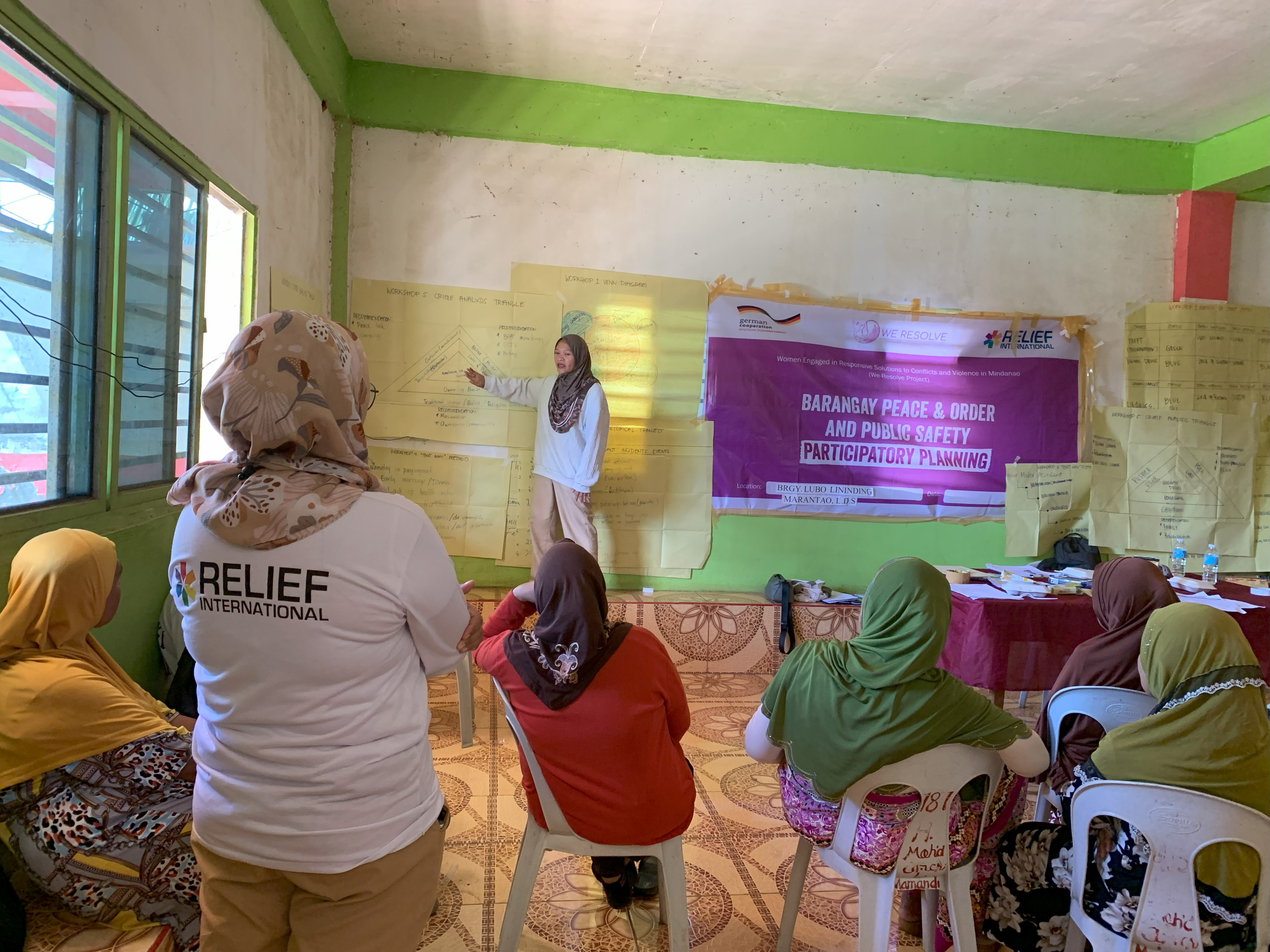Bangsamoro Autonomous Region of Muslim Mindanao (BARMM) faces numerous challenges, including conflict, poverty, and gender inequality. Despite the completion of a three-year peace process between the Philippine government and the Moro Islamic Liberation Front (MILF), armed groups like the Bangsamoro Islamic Freedom Fighters and the Abu Sayyaf Group continue to disrupt the region. Civilian displacements due to armed conflicts and natural disasters remain prevalent, with thousands displaced as of March 2022. The COVID-19 pandemic worsened economic vulnerabilities, especially among women, who lost livelihoods and faced increased poverty rates. Gender inequality persists, with limited female representation in politics and decision-making roles.
RI has been operating in the Philippines for 35 years, delivering a wide spectrum of humanitarian, development and nexus programming in crisis-affected areas. RI works at a national level but has a specific focus on Mindanao, and supports the most disadvantaged groups, including indigenous communities, internally displaced persons, especially female-headed households and persons with protection risks, in the least resourced provinces. RI partners with civil society and local government units to improve service delivery, peace-promoting inclusive development, good governance, strengthen community resilience, promote preparedness, response and early recovery from crises.
Given this situation, RI and its local partners aim to contribute to local peacebuilding and community stabilisation in BARMM through working with women and their organisations to engage local governance structures to strengthen processes, institutions, policies and practices that foster local peace and community stabilization.
